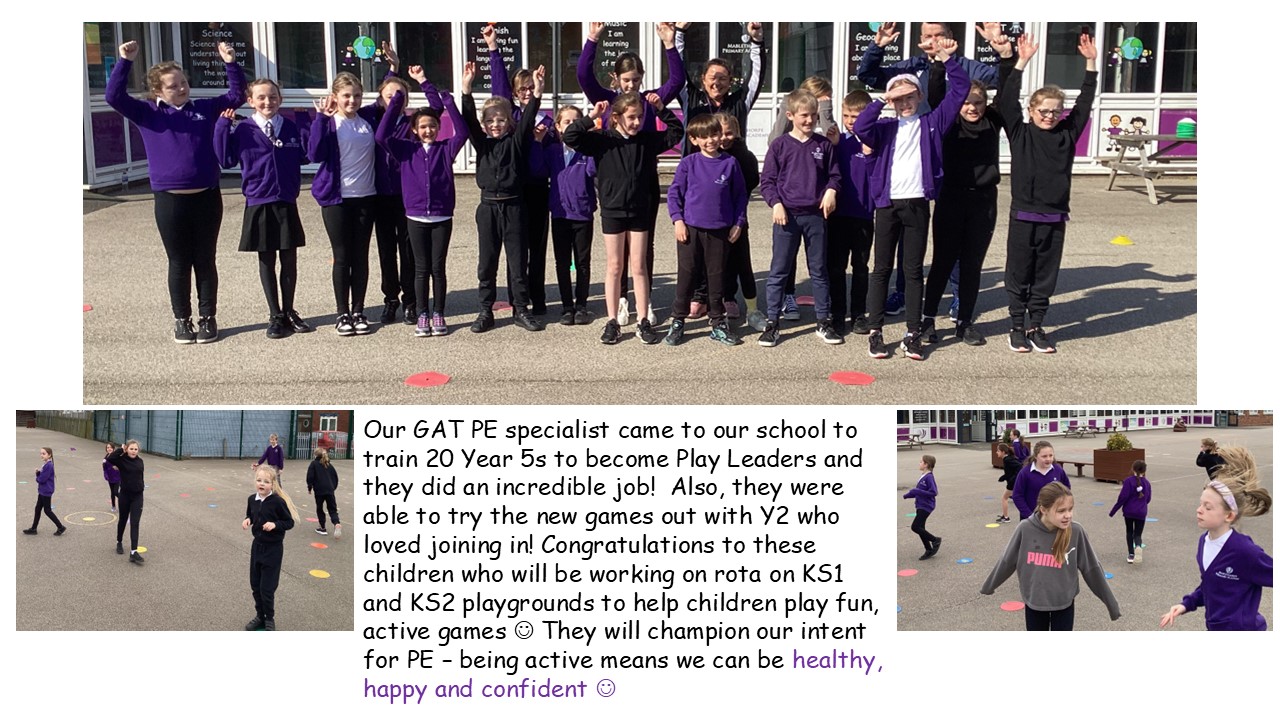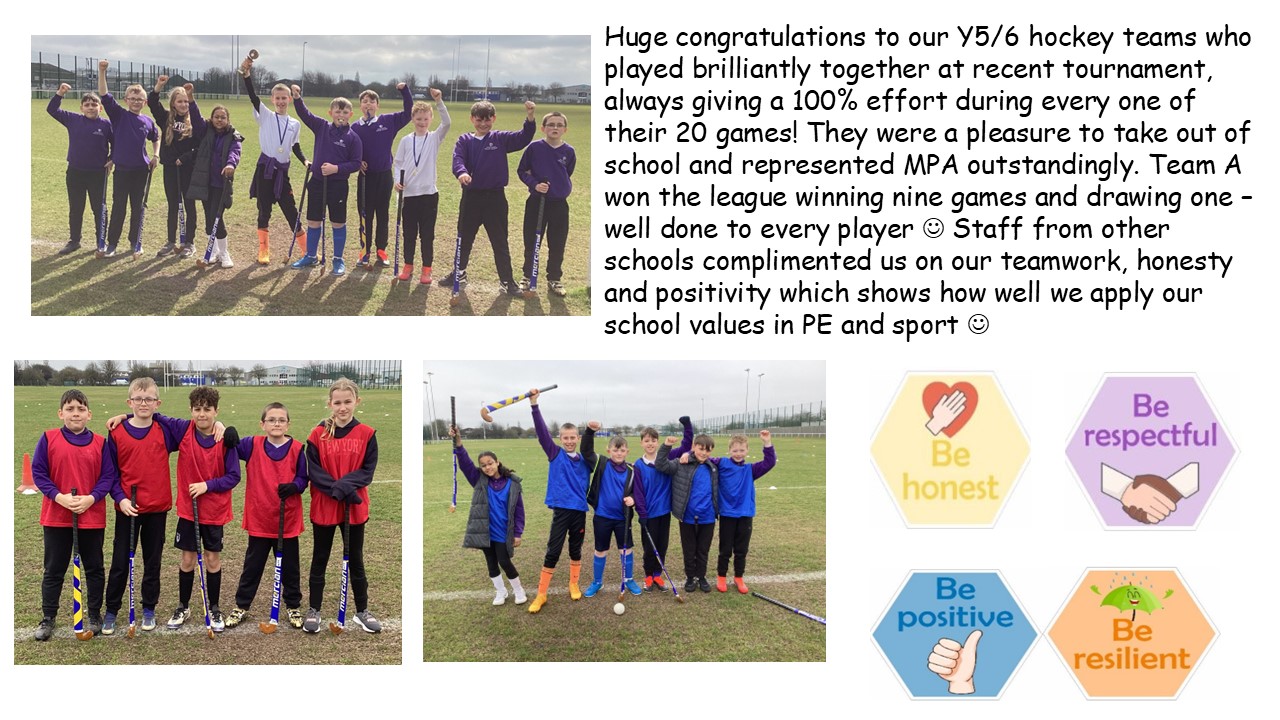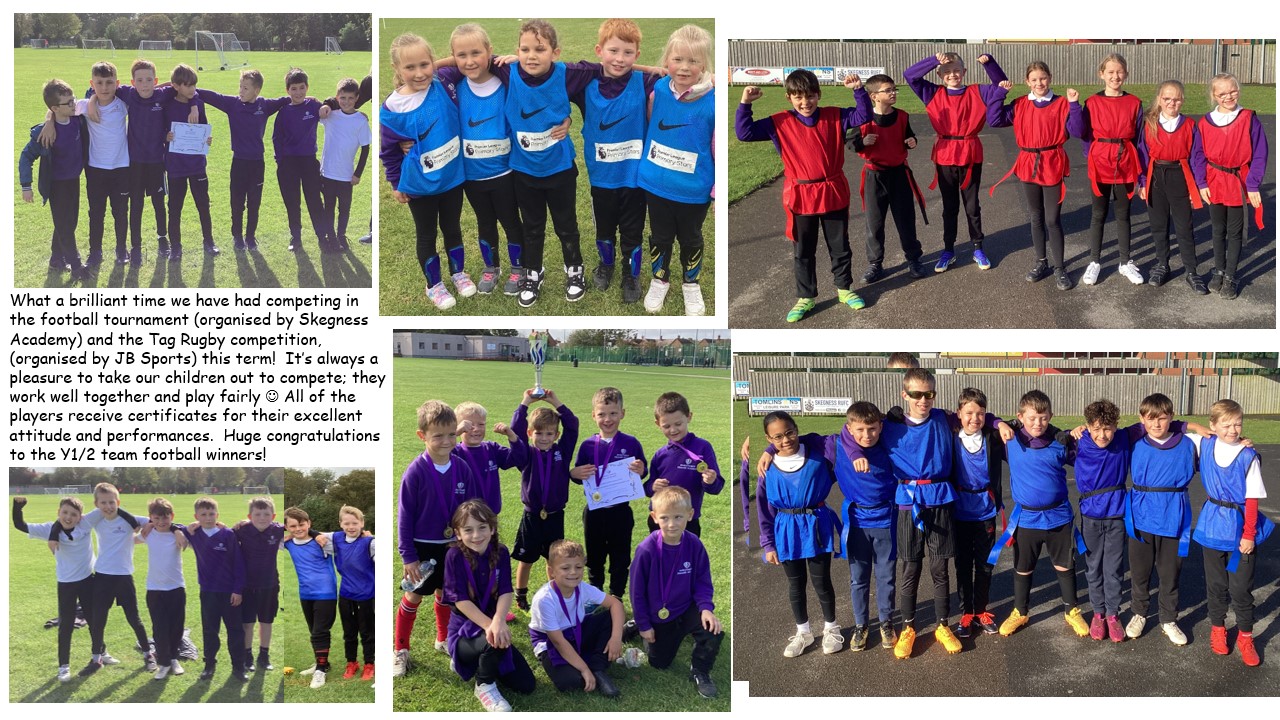Physical Education
Subject Coordinator - Mrs L Hastings

My aim as PE lead is to foster the love and enthusiasm that I have always had for PE to the pupils at Mablethorpe Primary Academy. We ensure that PE is fun, engaging and makes children feel confident and happy!
Our aims in PE are to keep physically active for sustained time periods and to build upon our children’s natural enthusiasm for movement where they can explore mentally and physically to solve problems independently and within a team. PE is a such a popular lesson and the children enjoy the fun opportunities and competitions; the pupil voice comments on our website explain some of the reasons why PE is important, how it makes the children feel and how they know they have been successful.
Being active, through PE and sports clubs allows the children to work together, showing perseverance, resilience and determination and the children can feel proud of their achievements. Positive attitudes and towards physical activity allows opportunities for evaluation, fair play, good communication and team-work which are excellent life skills.
Our PE curriculum encourages children to develop skills in different areas:
· Physical: to acquire, select and develop competency of skills within a wide range of activities such as gymnastics, dance, games, OAA, athletics and swimming.
· Personal: to be reflective learners who develop self-confidence, resilience, evaluate and improve performances
· Cognitive: applying skills and tactics, problem solving, developing physical and mental capacity
· Health: knowing and understanding that being active leads to happy, healthy lifestyles
Daily Mile will continue because it allows children to exercise whilst having some social time with friends; this is brilliant for mental health, well-being and increasing concentration levels. There are opportunities for all ages ranges to join in with after school sports clubs which are advertised termly and are always extremely popular! Y5 and Y6 Young Leaders are trained to work alongside staff to promote fun physical activities at lunch times.
Promoting health, fitness and physical activity helps children make active lifestyle choices which will hopefully continue beyond school years and could even lead children to pursue career choices through sport.
Our Football and Tag Rugby Teams. Term 1
Great resilience and superb team work has been shown during PE and football matches!
Subject Intent Statements:
Physical Education
Our physical education curriculum inspires everyone to be healthy, active, to develop physical skills and engage competitively and fairly. Pupils will be given opportunities to gain knowledge and experience a range of sporting activities that support them to have a healthy lifestyle. As children progress through the curriculum, they will be able to compete and be successful in PE and sport; such life skills will embed values such as co-operation, fairness, motivation and respect.
Physical Education for our children
PE makes me healthy, happy and confident.


To view our Sports Premium Offer please follow:
Pupil Voice 2024-2025
What do you like about PE?
We play fairly and take turns!
PE makes me feel happy and I am confident!
We work together in teams to become better!
My heart rate goes up during PE and Daily Mile!
PE is good for my well being.
PE is my favourite lesson because team-work is cool!
I love gymnastics because I can plan and perform with my friends.
I always need a drink after!
Swimming is super fun and it's hard work!
It helps us to be healthy and happy!
I feel excited about PE!
How do you know you have been successful in PE?
We get Star Boy or Star Girl every lesson!
I'm proud of myself when I've done my best!
We can get House Points!
We remember what we have learnt !
We talk to our partner or team and decide what we've done well!
We know when we have improved because we run faster in teams!
What do you enjoy about team work?
Working as a team is fun!
I make new friends when I work with people that I might not normally work with !
It helps us to try and improve and we can talk tactics!
We talk about the things we are good at
In teams, we think how to pass the baton and run quicker.
Why is it important to learn about PE at school?
We know how to play lots of different sports and how to use tactics!
When I'm older, I want to teach PE!
We learn new skills and get more confident!
I have improved my own standing long jump and triple jump record in After School Club!
We know that being active is important to keep healthy and stay fit
We help each other and I feel good when I do well.
My gives us energy and makes us feel motivated!
In English, we wrote a persuasive letter; we included lots benefits of PE!
We learn how support each other!
PE makes us strong and running gives you more energy!
I can throw further now because I have practised a lot in Athletics!
Do you get your heart rate up or get out of breath in PE?
Games in After School Club gets me out of breath!
I get out of breath during PE and Daily Mile
I feel out of breath every single PE lesson!
It's good to get of breath in PE - we're getting exercise!
PE is fun and it makes me feel positive!
Daily Mile is important because we get exercise and talk to friends so we remember more and are ready to learn afterwards!
I love Sports Club after school - we've played lots of different games!
Why do you enjoy competition in PE?
We do mini competitions so we have fun!
Yes, we try to run faster and jump further in Athletics!
I got Star Girl because I tried my best !
Competition is exciting and we go with our friends on the bus to other schools !
We won 9/10 games at hockey – our team was so happy when we won the tournament!
I was the star boy because I improved my technique in Archery!
ASC Clubs Term 6
Wednesday Games ASC Reception (3.15-4.15pm) JB and Mr Walton
Thursday Athletics Y5/6 Athletics (3.15-4.15pm) Mrs Hastings and Mr Walton



